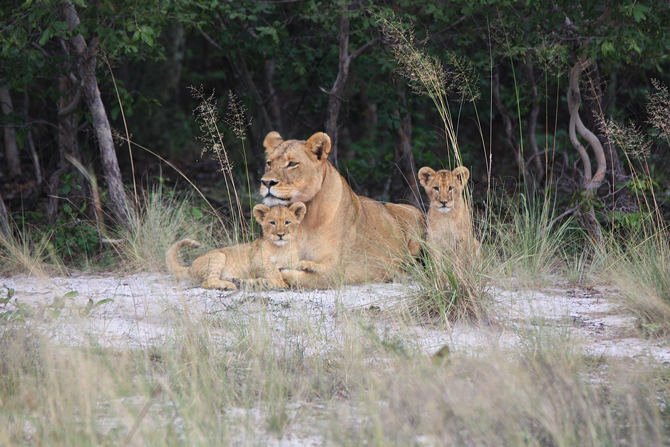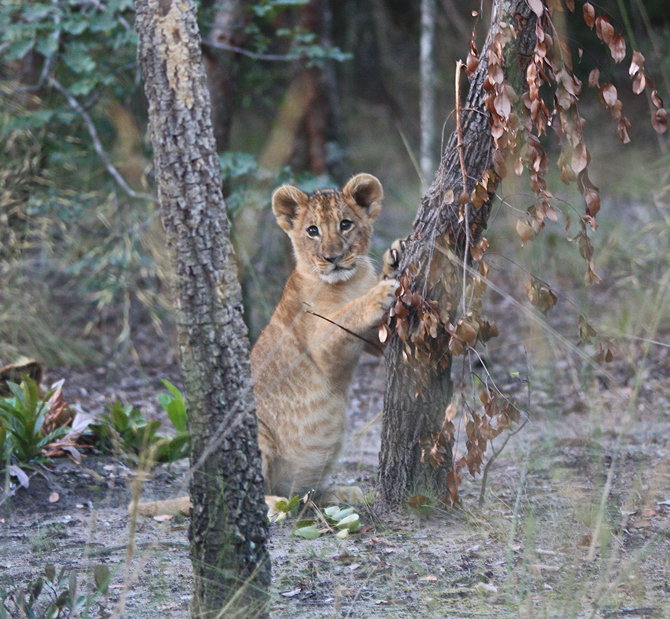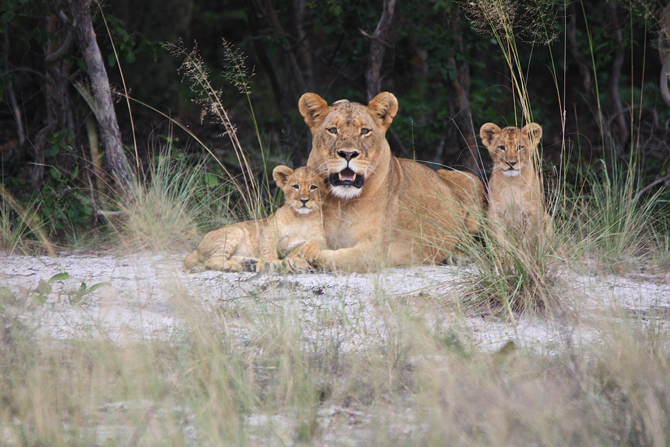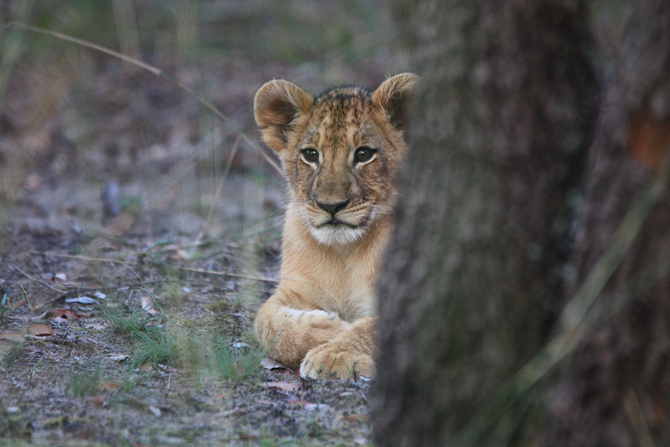Liuwa Park manager, Raquel Filgueiras, has captured the first clear images of three lion cubs born four months ago in Liuwa National Park. Liuwa’s lion cubs are the first to be born in Liuwa in a decade. The father of the cubs has been named Nakawa (which means the one who gives something back) and the mother has been named Sepo, which means hope.

For nine years, the matriarch of the pride, the world-famous Lady Liuwa, roamed the expansive plains alone after massive poaching and illegal trophy hunting had wiped out her fellow felines. This led to African Parks’ strategy to re-introduce lions to the park, using Lady Liuwa as the founding prode member. The birth of cubs means that Liuwa now boasts a lion population of six.

The names of the two adults were chosen jointly by members of the Lozi people in consultation with Frans Schepers, previously International Programme Manager at WWF – The Netherlands, and longstanding donor Casper ter Kuile.
Both commented on the relevance of the names: “Nakawa has helped re-established this keystone species in Liuwa. It is a beautiful Lozi name for a superb male lion,” said Frans Schepers. “Sepo provides hope for the future of the entire national park,” said Caspar ter Kuile, a sentiment echoed by Area Chief, Induna Mundandwe. “The birth of the lion cubs has restored the dignity of Liuwa and highlighted the potential to increase tourism revenue and the living standards of local communities,” he said.

Although four months old, the cubs remain vulnerable to attacks by other predators, as they are not yet old enough to accompany their mother when hunting. Conservationists agree that their mother, Sepo, would leave Liuwa’s lion cubs in a good hiding place while she is out hunting. Given the absence of other adult male lions in the park, Nakawa is spending more time than usual with his three offspring. He tolerates the cubs’ exuberant behaviour and would protect them in the event a hyena strayed too close. The sex of the three cubs has not yet been established.
As with humans, play is an important part of the learning process for lion cubs which they are currently doing by enthusiastically exploring their environment, smelling and chewing on sticks and bark. They also recently started nibbling on large carcasses provided by their mother.

To comment on this story: Login (or sign up) to our app here - it's a troll-free safe place 🙂.![]()








